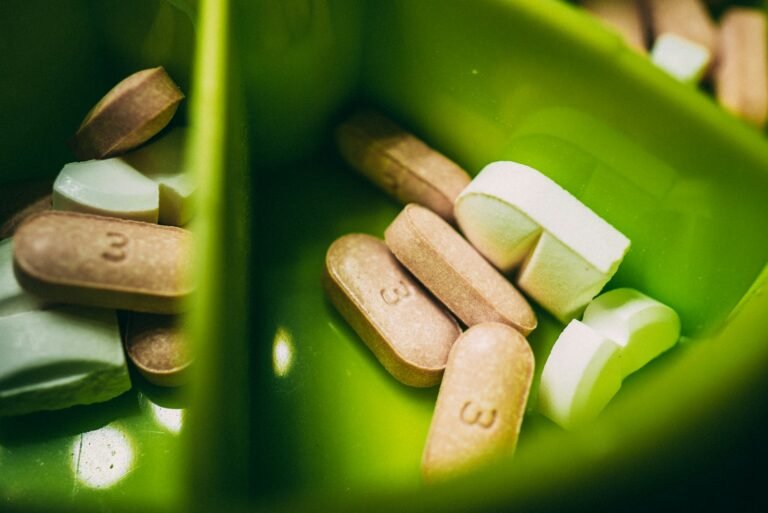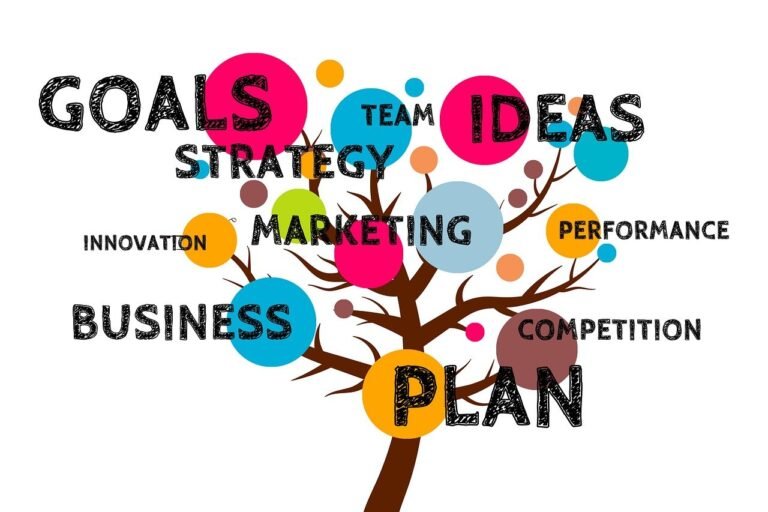How to Detox Your Body Safely
Safely detoxing your body is imperative for restoring balance and promoting overall wellness. By choosing natural methods and understanding your body’s needs, you can effectively eliminate toxins without compromising your health. This guide will provide you with practical tips and strategies to help you cleanse your system, focusing on nutrition, hydration, and lifestyle changes that support a gentle detox process. With the right approach, you can achieve a healthier, revitalized you.
Key Takeaways:
- Stay hydrated by drinking plenty of water to help flush out toxins and support kidney function.
- Focus on a balanced diet rich in fruits, vegetables, whole grains, and lean proteins to provide vital nutrients.
- Incorporate regular physical activity to boost circulation and support the body’s natural detoxification processes.
- Avoid extreme detox diets or fasting, as these can lead to nutritional deficiencies and other health issues.
- Consult with a healthcare professional before starting any detox program to ensure it is safe and suitable for your individual health needs.
Unpacking Detox Myths: What You Really Need to Know
The Truth Behind Detox Diets
Detox diets promise to cleanse your system and help you shed unwanted toxins, but the effectiveness of these diets is often overstated. Your body is naturally equipped with highly sophisticated organs, such as the liver and kidneys, that continuously filter and eliminate toxins without the need for restrictive eating. Some detox plans may leverage juice cleanses or extreme fasting, but these can lead to nutrient deficiencies and energy depletion instead of the revitalization they claim to offer. In fact, a study published in the Journal of Nutrition found that short-term detox diets do not significantly change toxin levels in the body or lead to long-lasting weight loss. In many cases, the perceived benefits of detox diets are merely temporary, often offset by the rebound effect when normal eating resumes.
Common Misconceptions Debunked
A prevalent myth is that detoxing flushes out heavy metals and environmental toxins from your body. However, research indicates that common detox methods, such as herbal supplements or extreme dietary restrictions, do not scientifically prove effective in removing heavy metals from your system. The body has its own mechanisms to process and excrete these substances, primarily through the digestive system. Moreover, the belief that detox can reset your metabolism is misleading; evidence shows that maintaining a balanced diet and healthy lifestyle is far more effective for metabolic health than any temporary detox regime.
Misinformation surrounding detoxification can often lead individuals to engage in harmful practices, believing they are aiding their health. For example, the notion that all fruits and vegetables are equally beneficial for detoxing is misleading, as some produce may hold more pesticide residues than others, potentially introducing more toxins than they remove. Understanding the evidence behind these misconceptions empowers you to make informed decisions about your health, steering clear of extreme diets and embracing whole, nutrient-rich foods instead.
Top Natural Detox Strategies for a Healthier You
Nutritional Approaches: Foods That Aid Detoxification
Your diet plays a vital role in supporting your body’s natural detoxification processes. Incorporating certain foods can enhance liver function, boost antioxidative capacity, and even facilitate the elimination of toxins. Leafy greens such as kale and spinach are rich in chlorophyll, which aids in removing toxins from your bloodstream. Cruciferous vegetables like broccoli and Brussels sprouts contain compounds that support liver function. Additionally, citrus fruits, particularly lemons, provide high levels of vitamin C, a potent antioxidant that helps neutralize free radicals and promotes detoxification pathways in the body.
Hydration: The Power of Water in Cleansing
Hydration is a cornerstone of any detoxification strategy. Water removes waste from the body, regulates its temperature, and supports numerous metabolic processes. Consuming adequate amounts of water throughout the day is vital for maintaining kidney function, which filters toxins from the blood. Aim for at least half your body weight in ounces of water for optimal hydration. For example, if you weigh 150 pounds, target around 75 ounces of water daily to help your body operate efficiently.
The Role of Exercise in Detoxification
Engaging in regular physical activity significantly enhances your body’s ability to detoxify. Exercise stimulates your circulatory system, allowing blood to flow more freely and carry toxins to your organs of elimination, such as the liver and kidneys. The more you move, the better your body can process waste. Your muscles produce heat during exercise, which helps raise your core temperature, encouraging your body to eliminate toxins through sweat. In fact, studies show that sweating can remove heavy metals and certain organic compounds, effectively reducing your overall toxic load. By incorporating exercise into your detox regimen, you can amplify the health benefits and facilitate the cleansing process more efficiently.
Routine workouts can also offer mental clarity, which is beneficial during a detox. Physical activity helps release endorphins, your body’s natural feel-good hormones, reducing feelings of anxiety or irritability that might accompany dietary changes. Whether you opt for high-intensity interval training (HIIT), strength training, or simply a brisk walk, finding an exercise that you enjoy will make it easier to stick to your detox plan and maintain motivation over time.
Sweating it Out: The Benefits of Physical Activity
During exercise, your body employs several mechanisms to rid itself of toxins, with sweating being one of the most visible and effective methods. As your body heats up, sweat glands come into play, releasing a mixture of water, salts, and toxins through your skin. This process can help flush out substances like alcohol, urea, and environmental pollutants. Engaging in activities that increase your heart rate, such as running, cycling, or dancing, can boost this natural detox effort. Spending time in a sauna or steam room can amplify these benefits, as the high heat further promotes sweating, enabling you to effectively rid toxins while relaxing your mind.
Incorporating a consistent workout routine doesn’t just enhance detoxification; it also bolsters your overall physical health. Improved circulation helps deliver oxygen and nutrients to cells, and enhances your immune response, making it easier for your body to fend off illness. Workouts driven by a mix of strength and endurance can invigorate your metabolism, supporting your body’s natural detoxification processes while ensuring you truly feel your best.
Mind-Body Practices: Yoga and Meditation for Detox
Yoga and meditation offer imperative support for detoxification, nurturing both the body and mind. Many yoga poses encourage deep breathing and promote circulation, which assists in the elimination of toxins. Certain asanas, such as twists and inversions, stimulate the organs in your abdomen, like the liver and intestines, enhancing their ability to function optimally. Deep breathing practices not only optimize your oxygen intake but also activate your parasympathetic nervous system, enabling relaxation and a sense of calm during the detoxification process. Research has shown that just a few minutes of focused breathing can significantly lower cortisol levels in your body, promoting a balanced emotional state during times of dietary or lifestyle transitions.
Meditation, on the other hand, creates mental clarity and reduces stress, both of which are vital for effective detoxification. Stress can produce a cascade of negative hormones that hinder the body’s natural cleansing abilities. By practicing mindfulness meditation or simple visualization exercises, you can foster a positive mindset that supports your detox efforts. Regularly dedicating time to these practices can help you stay aligned with your health goals, guiding your journey towards a healthier, more balanced self.
Recognizing Signs of a Toxic Load: When to Detox
Physical Symptoms: How Your Body Signals Need for Detox
Physical signs often manifest as your body’s way of communicating the necessity for a detox. Frequent headaches, unexplained fatigue, and persistent digestive issues like bloating or constipation could indicate a toxic overload. Skin problems, such as dullness, acne, or rashes, can also suggest that harmful substances are impairing your body’s functions. Additionally, if you’re experiencing a higher frequency of colds and sickness, your immune system might be struggling due to excess toxins. Listening to these signals signals an opportunity for change and rejuvenation.
Weight fluctuations, especially unexplained weight gain, can also be a subtle indicator that your body is holding onto toxins. The body can sometimes store chemicals in fat cells, leading to an imbalance that makes it hard to lose weight. If you’re finding it challenging to shed those extra pounds despite healthy eating and exercise, it might be time to consider a detox program that helps eliminate these stored toxins, allowing your metabolism to reset and function more efficiently.
Emotional and Mental Indicators: Stress and Detox
The impact of toxins on mental health is significant, often leading to increased levels of stress and anxiety. If you find yourself experiencing mood swings, irritability, or a general sense of emotional instability, it could be due to accumulated toxins in your body. These compounds can interfere with neurotransmitter function, affecting your brain’s chemistry and overall mood. Recognizing this connection can empower you to take steps toward detoxing not just your body, but also your mind.
Beyond mood fluctuations, symptoms like brain fog, reduced focus, and memory issues signal that your mental clarity may be compromised. Chronic stress can lead to unhealthy coping mechanisms, further exacerbating toxic build-up. Understanding that emotional and mental states are intertwined with physical health strengthens the case for detoxification when you feel out of balance. Embracing a detox regime can rejuvenate both your mind and body, creating harmony within yourself.
Safe Detox Protocols: How to Do It Right
Listening to Your Body: Adjusting Detox Plans to Fit You
Your body communicates its needs and responses throughout the detox process, so tuning in is crucial. When you launch on a detox, keep an eye out for signs of discomfort, fatigue, or heightened symptoms. These reactions may indicate that you need to adjust your regimen. If you find that the increase in fiber from fruits and vegetables is causing digestive issues, consider gradually incorporating these foods into your diet instead of making sudden changes. Each individual’s experience can vary; what works for one person may not be suitable for another. Pay attention to what feels good and what doesn’t, and don’t hesitate to tweak your plan according to your personal health and comfort levels.
Professional Guidance: When to Consult a Healthcare Provider
Engaging a healthcare provider ensures accountability while you undertake a detox. Professionals can also assist in assessing your nutrient levels and overall health status, guiding you on supplements that might be beneficial during this time. This level of support can be invaluable, especially if unexpected symptoms emerge that may need professional intervention. Don’t hesitate to reach out and ask questions—it’s a proactive step towards ensuring that your detox journey is both safe and effective.
Summing up
Summing up, detoxifying your body safely involves a balanced approach that prioritizes nutrition, hydration, and lifestyle changes. You should focus on incorporating whole foods, such as fruits, vegetables, and whole grains into your diet while minimizing processed foods and added sugars. Maintaining adequate hydration is imperative, as it helps your body effectively eliminate toxins. Engaging in regular physical activity and managing stress through practices like yoga or meditation can also support your detoxification efforts, allowing your body to function optimally.
Additionally, gaining insights into common misconceptions about detoxification can enhance your understanding of the process. For example, not all detox diets or products are beneficial, and some may even be harmful. Educating yourself on the science behind detoxification, such as the importance of liver health, is vital. You can explore more about this topic by checking out Detoxing Your Liver: Fact Versus Fiction. By adopting a comprehensive and informed approach, you can safely support your body’s natural detoxification processes.
FAQ
Q: What are the signs that my body may need a detox?
A: Some common signs that your body may need a detox include fatigue, headaches, digestive issues, skin problems, and frequent colds or infections. Additionally, if you find yourself feeling sluggish and unable to concentrate, or if you have cravings for unhealthy foods, it might be time to consider a detox.
Q: Are there any specific foods I should incorporate into my detox diet?
A: Yes, incorporating whole foods such as fruits and vegetables, particularly leafy greens, can be beneficial. Foods rich in fiber, like whole grains, legumes, and nuts, help in flushing out toxins. Additionally, staying hydrated with plenty of water and herbal teas can assist in the detox process.
Q: How long should a detox program last for effective results?
A: The duration of a detox program can vary based on individual needs and goals, but typically, a safe detox should last between 3 to 14 days. Shorter programs can provide immediate benefits, while longer ones can help establish healthier habits. It is advisable to ease into and out of the detox period gradually.
Q: Is it necessary to use detox supplements or products?
A: It is not necessary to use detox supplements or products, as the body is naturally equipped to eliminate toxins. However, if you choose to use supplements, ensure they are from reputable sources and consult a healthcare professional beforehand. Focus on whole foods and hydration instead as a primary method for detoxing.
Q: What are some common myths about detoxing I should be aware of?
A: One common myth is that detoxing is a quick fix for health issues or weight loss, which is misleading. Sustainable health changes require long-term lifestyle adjustments. Another myth is that all detox diets are safe; some extreme diets can be harmful. Always prioritize a balanced diet and consult with a healthcare professional if you’re unsure about the best approach for your health.








